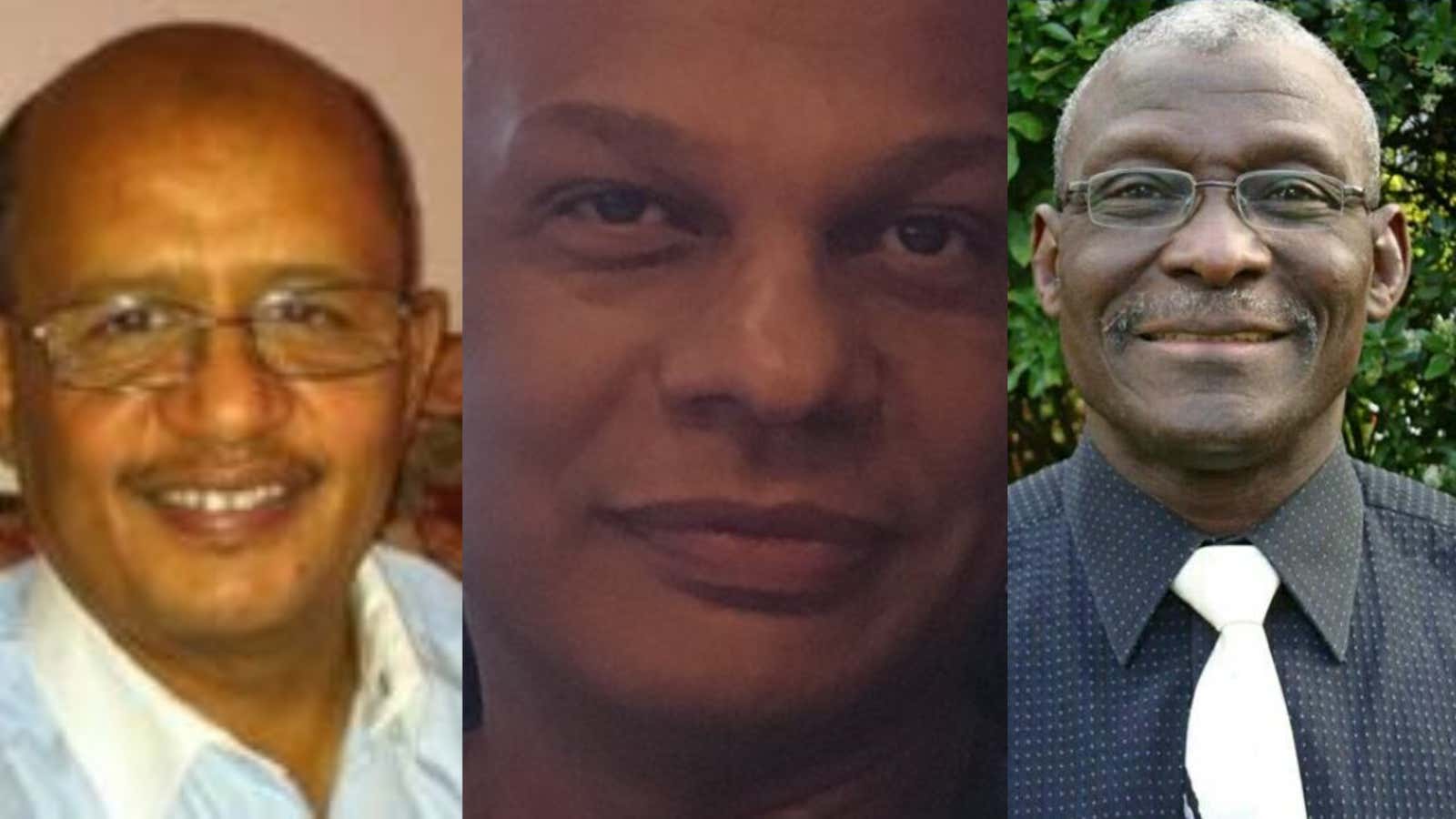There was a tragic inevitability the ongoing Covid19 pandemic would sooner than later begin to ravage the medical staff of UK’s revered National Health Service (NHS), but there was added poignancy about the identities of the first three frontline doctors who lost their lives.
Dr Adil El Tayar (64) and Dr Amged el-Hawrani (55 years old) are Sudanese, while Dr Alfa Saadu (68) is Nigerian. The three of them had accumulated over 100 years of dedicated service to the NHS: two of them, El Tayar and Saadu had retired but recently voluntarily returned to assist the NHS and the country through the pandemic.
All three African-born doctors were Muslims, a fourth NHS doctor to die, Habib Zaidi, 76, of Pakistani origin was also a Muslim. As much as one might pray, there is a strong likelihood more NHS staff of all types of backgrounds and levels will become infected with the virus, the hope is for few or no more deaths.
Britain, which went into lockdown on Mar. 23, is on a steep coronavirus trajectory as it battles the virus with more 3,600 deaths as of April 3.
There is a sad irony these gentlemen find themselves in the limelight in the week where the entire country stepped out of self-isolation for five minutes to pay a beautiful tribute to NHS staff—even while some sections of the British press refused to acknowledge the diversity of the NHS in that touching moment. Even more ironic is the fact the post-Brexit mood-music on immigration being played by the Boris Johnson administration had been one that was doubling down on the “hostile environment” policies of the Conservative administrations of the past 10 years. It had been variously pointed out the hardline approach would inimically affect the NHS, given its long-standing reliance on foreign workers, which manifests itself in a remarkably ethnically diverse work force.
The diversity of the service has its roots in the post-World War II recruitment policy of Britain to source staff from its then empire. Indeed, one of the news reports that would have gained far more traction had it not been released in the midst of the Covid-19 epidemic was the long-awaited report on the independent inquiry into UK’s treatment of the Windrush generation, which slammed the government for its “thoughtlessness” and “institutional racism”. This report prompted the home secretary Priti Patel to apologize in the House of Commons, even though there is no indication that the government intends to backtrack on its policy.
That the revered NHS confronting the nation’s biggest ever public health crisis has as its vanguard martyrs three African gentlemen of Muslim origin must have been particularly uncomfortable for prime minister Boris Johnson, given his long-standing prejudicial comments about Africans and adherents of Islam, which has manifested itself in a plethora of disparaging statements over several years.
These include describing African children in tropes of “picaninnies with watermelon smiles”, dismissing Muslim women as looking like “letter boxes and bank robbers”, defending islamophobia as a “natural reaction”, categorically identifying “Islam is the problem”. Unsurprisingly, he recently dropping a previous pledge to hold an inquiry into Islamophobia in the Conservative Party.
Earlier in the year at the UK-Africa Investment Summit held in London, Johnson sought to defuse concerns about the UK’s post-Brexit immigration policy. This was in light of the revelations that African UK visa applicants are more than twice as likely to be refused UK visas than those from any other part of the world, which prompted one African Minister to observe that their ‘draconian immigration system’ is “damaging relations with African countries”.
Britain now says to help better manage the public health crisis, visas for all foreign nationals working in the NHS would be extended by a year “free of charge”. Amongst the many things the Covid-19 pandemic should open a serious debate about is how the health systems of the Global North are effectively plundering the medical professional resources of the “poverty capitals” of the world.
Just last week, the US Embassy in Nigeria had to issue a “clarification” of a message they had shared on social media that had been widely interpreted as the US embarking on a massive recruitment exercise of foreign medical personnel. Apparently, all they were doing was fast-tracking visa appointments for medical professionals who had been previously pre-screened.
This matters because Nigeria has 72,000 registered doctors in the entire country of over 180 million people. Yet the Association of Nigerian Physicians in the Americas represents the interests of over 4,000 members in North America. The Medical Association of Nigerians across Great Britain boast of 18,000 members: the late Dr Sa’adu was indeed one of their proud distinguished members.
Sign up to the Quartz Africa Weekly Brief here for news and analysis on African business, tech and innovation in your inbox
